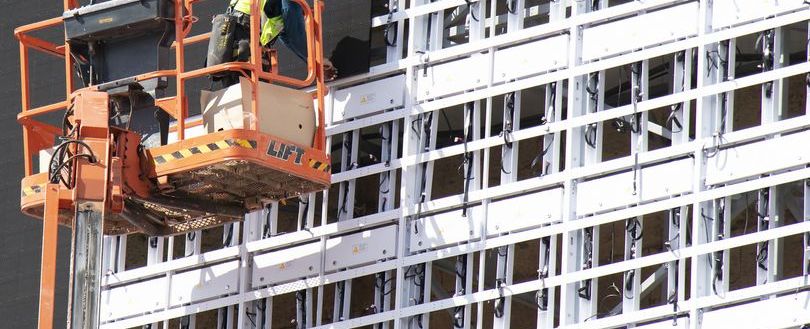
Government-backed PII scheme for EWS-1 assessors to be delivered by MGAM and SCOR
Like it? Share it!
01 July 2022
External wall fire review process forms, commonly known as EWS-1 Forms, were developed by the Royal Institution of Chartered Surveyors (RICS), UK Finance and the Building Societies Association to support the valuation process for high-rise residential buildings with cladding.
At present, there’s a significant shortage of insurance companies willing to provide professional indemnity cover to firms undertaking assessments of external wall systems in mid-rise and high-rise residential buildings. This is contributing to issues in certain segments of the property market with buyers unable to obtain the necessary certification to secure a mortgage.
On 10th February last year, the Department for Levelling Up, Housing and Communities announced a government-backed PII scheme for competent fire safety professionals undertaking EWS-1 assessments to help resolve these issues. Under the new arrangements announced on 28th of June, this scheme will be delivered by MGAM through insurance provided by SCOR UK, with Her Majesty’s Government providing reinsurance coverage to SCOR.
The scheme, which is due to be officially launched in September, will last for five years. After this time, it’s anticipated that insurers will step back into the market, which will then remove the requirement for a state-backed scheme.
Lord Stephen Greenhalgh, the Minister of State for Building Safety and Fire, explained “We are taking more decisive action than ever before to tackle over-cautious lending and to help identify fire risks. I’m delighted that MGAM and SCOR are joining us in these efforts.”
Stuart Andrew, the Minister for Housing, observed “In order to offer EWS-1 PII to competent assessors, my department must accept an unlimited contingent liability, with the Government Actuary’s Department making a best estimate of expected losses at circa £100 million. The contingent liability being claimed is unlimited because there is no theoretical cap on the size of claims that could be made. However, the risk is limited by the number of buildings and the number of EWS-1 assessments.” He added “To further mitigate this risk, we will only be offering PII cover for accredited professionals who have the requisite training, expertise and knowledge to undertake the EWS-1 assessment. In addition, completed EWS-1 assessments will be subject to an audit process to ensure they are being completed accurately and with due process being followed.”
Commenting on this development on LinkedIn, Anthony Walker of FRICS FSCSI MIFireE noted “The delay in reaching this position has, in my opinion, resulted in many surveyors not pursuing the RICS External Wall Systems Assessment training programme. Asking surveyors to commit well over 40 hours towards study for a qualification that was of little value without PII was seen by many as not best use of fee-earning time.” Walker concluded “Since the RICS training programme launched in November 2020, I am led to believe that the total number of individuals who have qualified is less than 100. Hopefully, this latest news from Government will afford practising surveyors greater levels of confidence when it comes to the value of them committing their time to the EWS-1 course.”
An EWS-1 Form is not a government or regulatory requirement, nor is it a building or life safety assessment. RICS has published guidance on the criteria that should be used to determine whether a building needs an EWS-1 Form. That guidance was last updated on 28th January this year.
Related training
Related news
-
Fire Enforcement Notices Served on Hinkley Point C Contractors
25 February 2026
-
Call for Publication of BS 8414 Test Data
11 February 2026
-
New FIA Environmental Guidance Legislative Overview Published
03 February 2026
Related resources
-
Euralarm-FAQs-re-Environmental-Product-Declarations-EPDs.pdf 1
27 November 2025
-
Fire Risk Assessors Standard Scope of Services
07 August 2025
